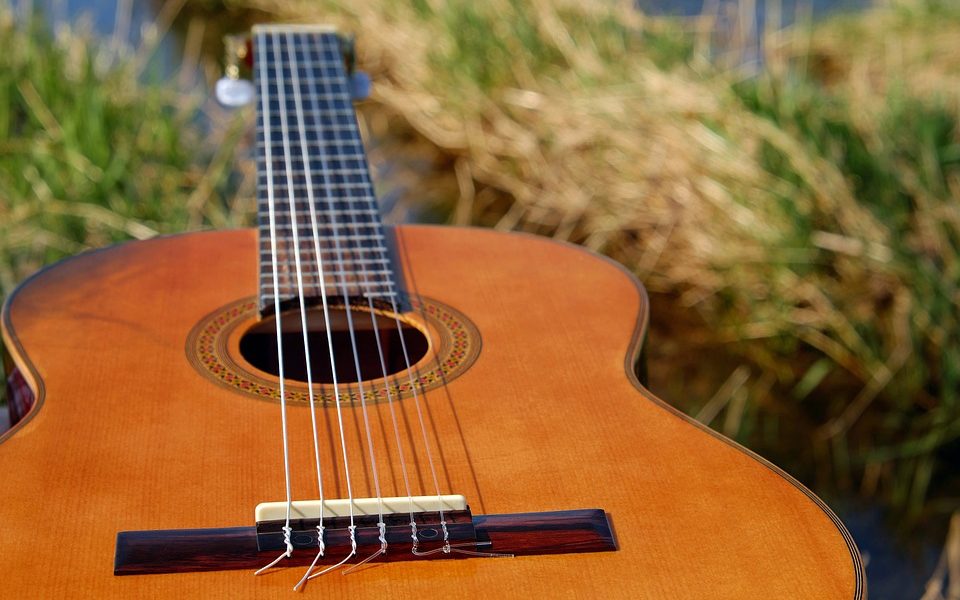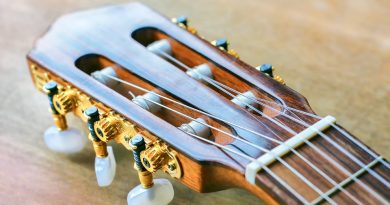Build Finger Strength: Essential Guitar Tips for Beginners
Building Finger Strength: Essential Guitar Tips for Beginners
As a beginner guitarist, one of the most important skills you can develop is finger strength. Strong fingers are essential for playing chords, soloing, and executing complex techniques on the guitar. Fortunately, there are a variety of exercises and techniques you can use to build finger strength and improve your overall skill level. In this article, we will discuss some essential tips for beginners looking to build finger strength on the guitar.
1. Start Slow and Focus on Technique
When first starting out, it’s important to focus on proper technique rather than speed. Many beginners make the mistake of trying to play too fast too soon, which can lead to sloppy playing and potential injury. Instead, start slow and focus on playing each note cleanly and accurately. This will help you develop good habits and build a solid foundation for later on.
2. Use a Metronome
A metronome is a valuable tool for guitar players of all levels. It helps you develop a sense of timing and rhythm, which is crucial for building finger strength and coordination. Start by setting the metronome at a slow tempo and practice playing scales, chords, and exercises in time with the beat. As you become more comfortable, gradually increase the tempo to challenge yourself and improve your speed and accuracy.
3. Practice Scales and Exercises
Scales and exercises are great for building finger strength and dexterity. They help you develop muscle memory and coordination, allowing you to play more complex passages with ease. Start by learning basic scales such as the major and minor scales, and practice them regularly to improve your finger strength and technique. You can also find a variety of exercises online or in guitar books that are specifically designed to build finger strength and coordination.
4. Use Proper Hand Position
Proper hand position is crucial for building finger strength and preventing injury. Make sure to keep your wrist straight and your fingers curved when playing the guitar. This will help you maintain control over the strings and produce a clear, clean sound. Avoid squeezing the neck of the guitar too tightly, as this can cause tension and strain on your fingers and wrists. Instead, try to relax your hand and fingers while playing to build strength and flexibility.
5. Experiment with Different Finger Exercises
There are a variety of finger exercises you can try to build strength and dexterity on the guitar. One popular exercise is the “spider” exercise, where you play a sequence of notes using all four fingers on one string. Another exercise is the “hammer-on/pull-off” exercise, where you play a note and then hammer-on or pull-off to another note without re-picking the string. These exercises help build finger strength and coordination, allowing you to play more efficiently and smoothly.
6. Stretch and Warm Up Before Playing
Before you start practicing, it’s important to stretch and warm up your fingers and hands. This will help prevent injury and improve your overall playing ability. Try stretching your fingers by gently pulling them back and forth, or lightly massaging your hand to loosen up the muscles. You can also try warming up by playing simple scales or chords slowly to get your fingers moving and ready for more intense practice.
7. Stay Consistent and Patient
Building finger strength takes time and dedication. It’s important to practice regularly and stay patient as you work on improving your skills. Set aside a specific time each day to practice and stick to a routine to see progress. Remember that building finger strength is a gradual process, so don’t get discouraged if you don’t see immediate results. Stay consistent, keep practicing, and you will see improvement over time.
In conclusion, building finger strength is essential for beginner guitarists looking to improve their playing ability. By focusing on proper technique, using a metronome, practicing scales and exercises, maintaining proper hand position, trying different finger exercises, stretching and warming up before playing, and staying consistent and patient, you can build strong fingers and improve your overall skill level on the guitar. With time and dedication, you’ll be able to play more efficiently and confidently, setting yourself up for success as a guitarist.






